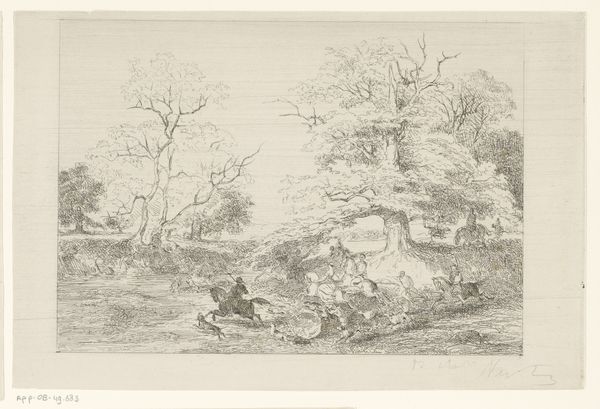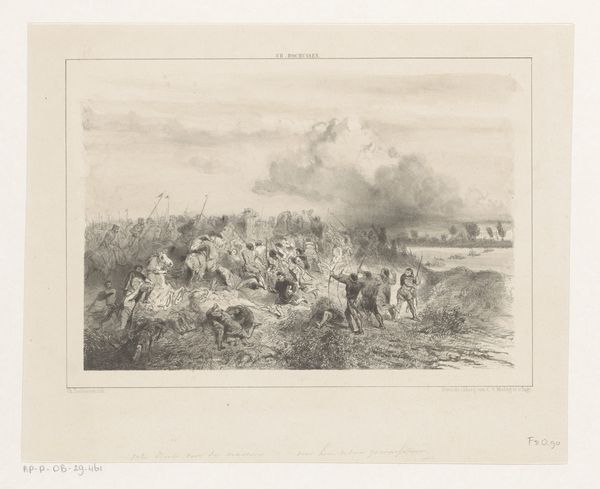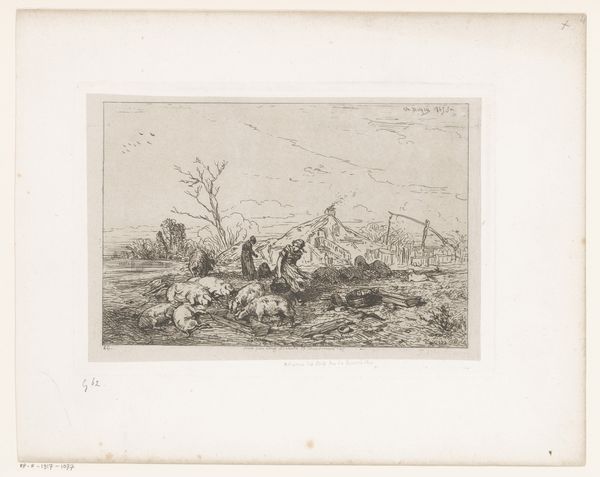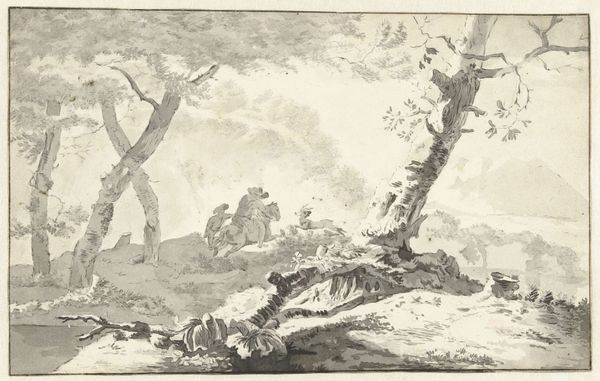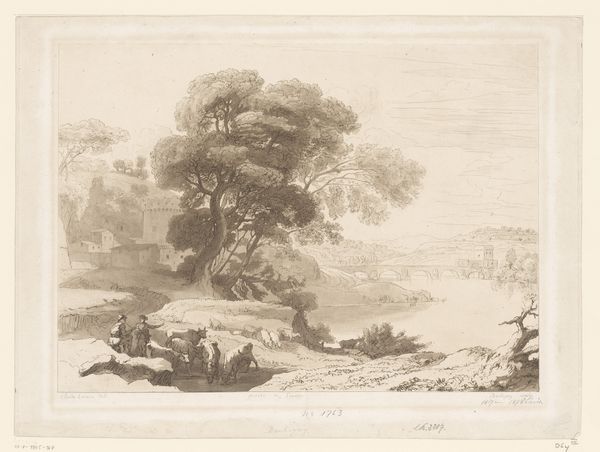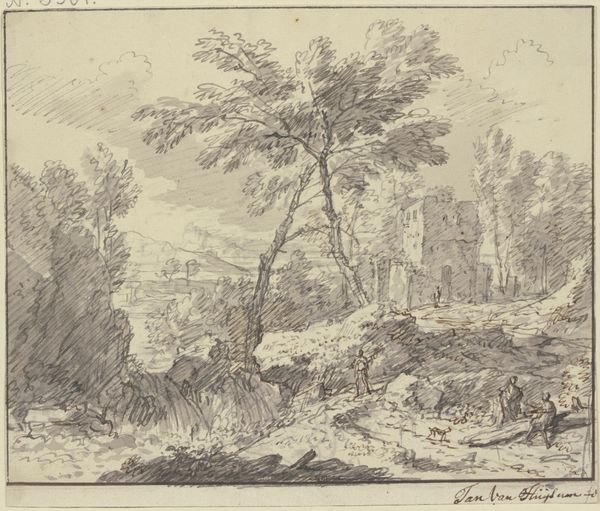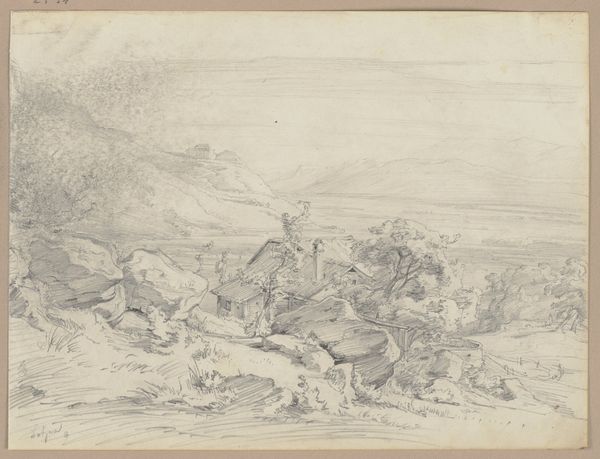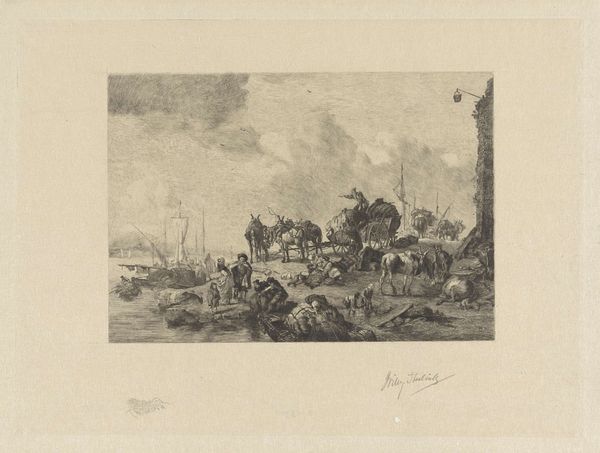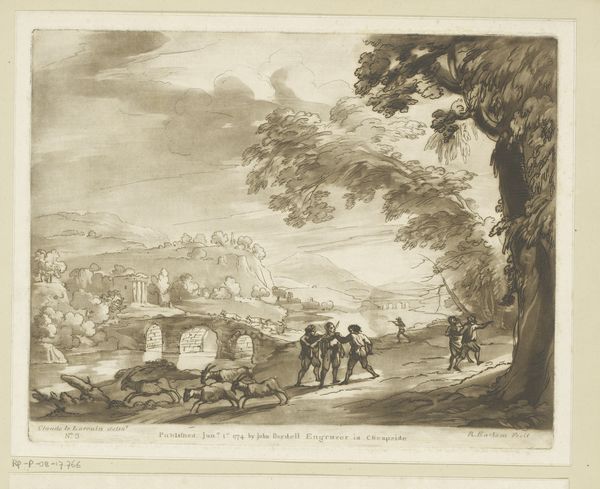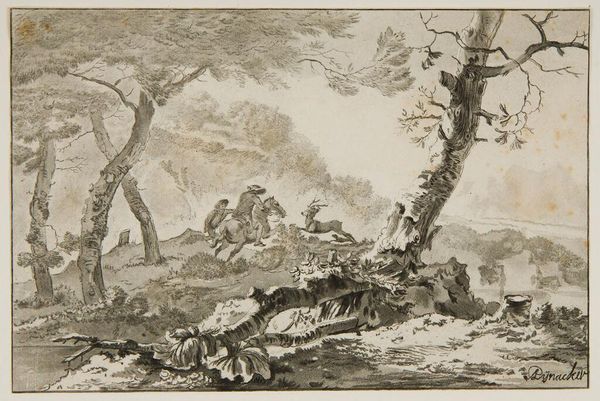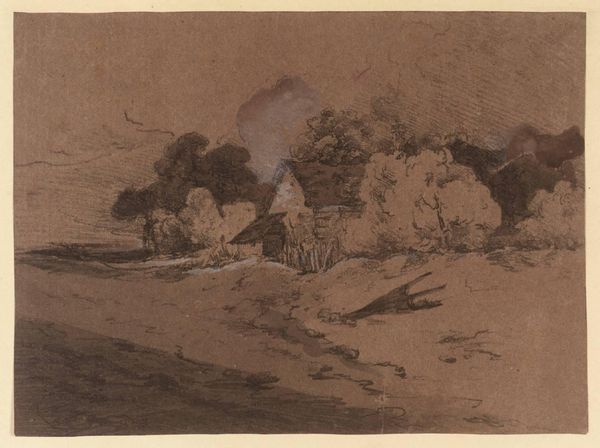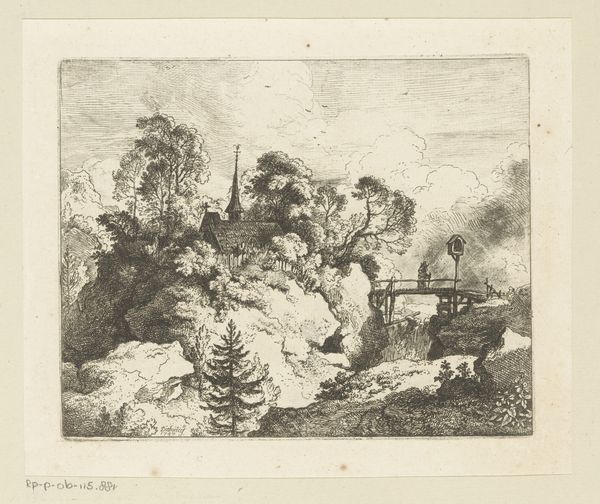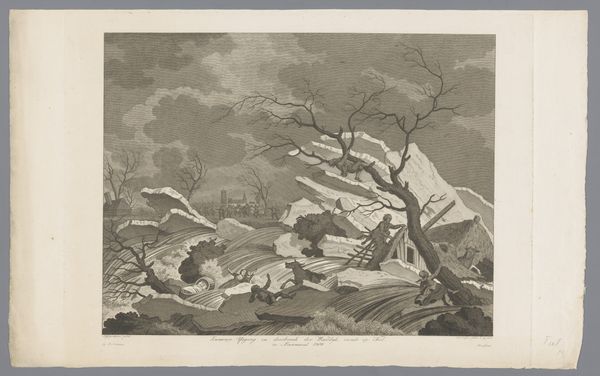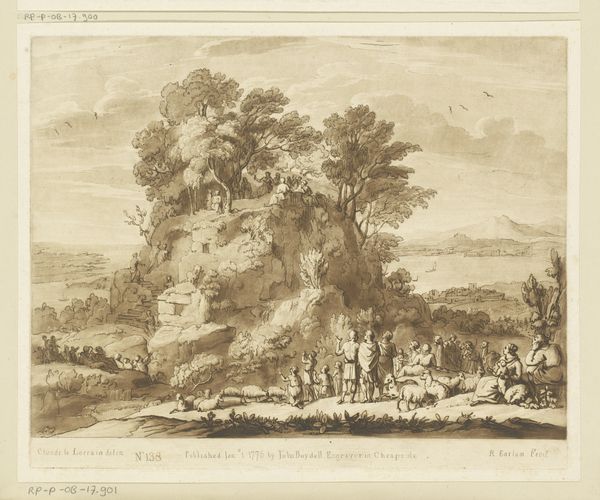
Dimensions: height 154 mm, width 232 mm
Copyright: Rijks Museum: Open Domain
Curator: What do you see in this wash drawing, a certain drama perhaps? Editor: I feel a melancholic stillness actually, like the quiet before or after a storm. What is it? Curator: It's entitled “Landschap met hertenjacht” or "Landscape with Deer Hunt," attributed to Cornelis Brouwer. Created sometime between 1741 and 1803, it’s ink on paper and we have it here at the Rijksmuseum. Editor: Deer hunting as romantic tableau? I’m immediately suspicious, especially of landscape paintings. Curator: Oh? It feels rather wistful, doesn't it? All that layered grey ink suggesting depth, the looming trees, the hint of distant mountains...It reminds me of the landscapes from my childhood in the countryside, or at least, how I remember them. I've got a strong sensation of nostalgia. Editor: Exactly. Landscapes weren’t "discovered" by the wealthy classes of Europe and America because they wanted to portray the beauty of nature. The romanticising of such scenes provided a perfect distraction from issues of labor and land enclosure. So much gets conveniently concealed behind those lovely, layered brushstrokes. Who owns this land, I wonder? Curator: Hmm, that’s quite a bleak interpretation, though definitely important. I'm still drawn to its composition – see how the fallen tree trunk in the foreground anchors the whole scene, leading the eye into the imagined depth? The active hunting party, so diminutive amid the landscape, it’s really a question about human insignificance in the face of nature's grandeur, I suspect. Editor: Perhaps. Or it could just as easily be read as a claim of dominion over the natural world. This work exists squarely within the conventions of Romanticism; consider how that so-called "insignificance" always conveniently ignored the fact that certain bodies were significantly more empowered to extract value from land than others. It's no surprise these landscapes hang in wealthy private collections, today! Curator: You always manage to make me re-think my personal connections. Maybe my rural childhood wasn’t so idyllic as my imagination suggests! Editor: It never is, is it? But grappling with art is often grappling with memory. Curator: Indeed. An art history for our times, absolutely.
Comments
No comments
Be the first to comment and join the conversation on the ultimate creative platform.
